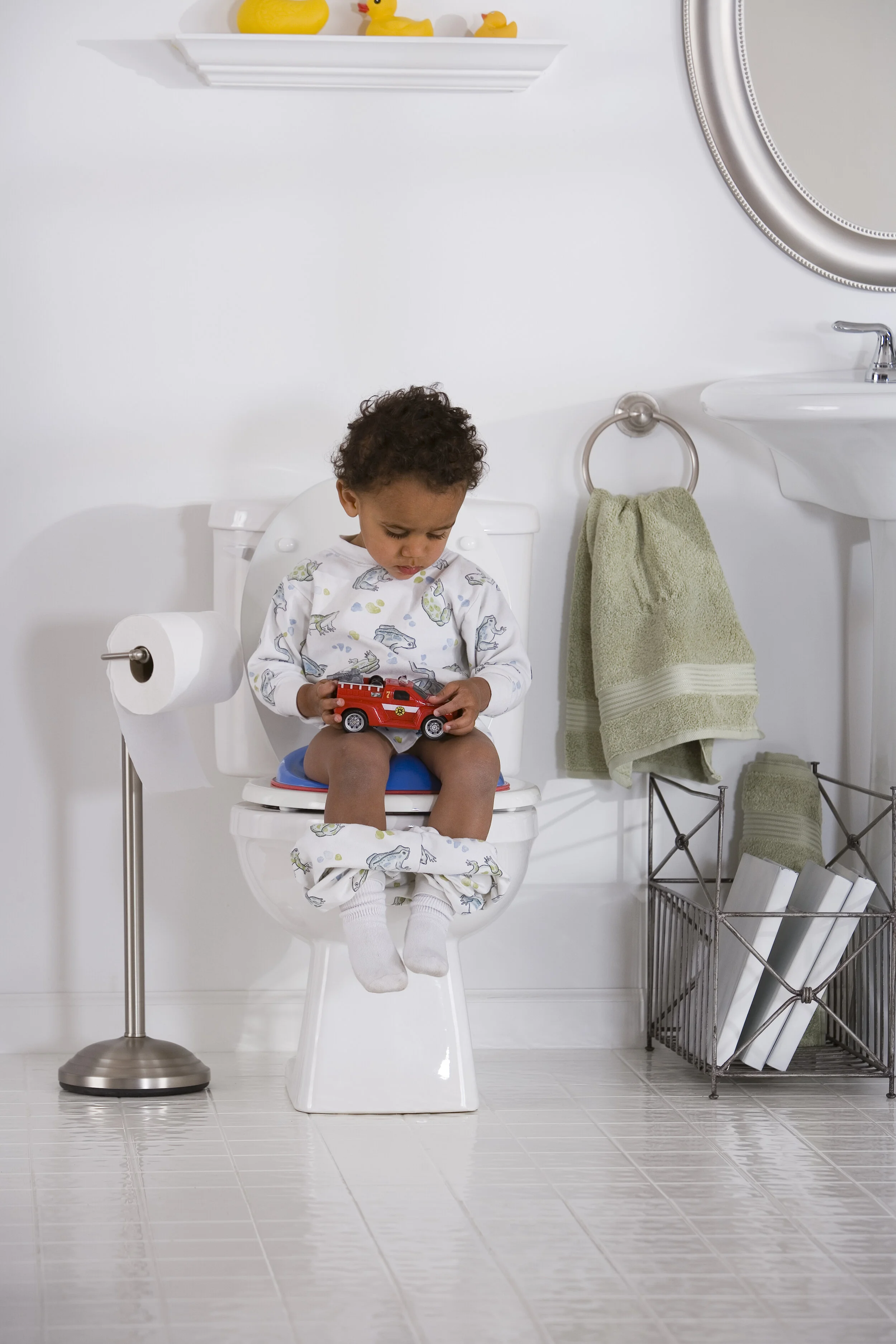Potty Training - Is My Toddler Ready?
One of my biggest trepidations as a first time mom was the…potty training stage…dun dun dun. This learning process can be a battle of wills, full of frustration from child and parent, or it can be a new learning adventure that leads to no more diaper blow outs and saving you a little more cash in your wallet. We all want the latter, but how do we reach this holy grail of no more diapers without losing our mind?
Signs of Readiness
There is not a certain age a child hits that means it is potty training time. Instead, I looked for signs that my toddlers were ready to start potty training. These signs include:
· Telling you when they pee or poop in their diaper
· Going to find a quiet place to pee or poop
· Interest in others’ going to the bathroom
· Waking up from nap with a dry diaper
· Waking up from bedtime with a dry diaper
· Asking to sit on the toilet
· Showing independence in other areas
If your toddler is showing 2-3 of these signs, then it’s a good indication that they are ready to start potty training. My children were around 2.5 years old when I began to notice these signs of readiness. I’m just sharing their age as a reference for when you might begin to notice these signs of readiness in your own child; however, you could begin to see signs of readiness sooner or later for your children.
The Journey
You both want potty training to be a smooth and successful journey, so it’s not about the “right” age it’s about making sure you and your toddler are ready to start potty training. The full potty training process takes an average of 8 months (that means no more accidents). If you wait until your toddler is showing signs of readiness, then potty training will likely be easier and less frustrating.
Although, sometimes children do show signs of readiness and start out potty training fine, but they get stuck and have a hard time listening to their bodies. No worries! Just take a break from potty training for a few weeks or months and start over when they are more aware of feeling the need to use the toilet. (I did this with my second child!)
Potty training is a developmental process. Children’s bodies and brains are developing all the time. Through encouragement and positive praises, we can help support this new developmental milestone—potty training—happen, but we can’t make it happen if they are not ready. So look for the signs that your child is ready to start potty training before you begin the potty training journey.
What fears do you have about potty training? Please email me so I can offer you support.
Next week, I’ll share all of the “tools” needed to help make your potty training experience successful.


